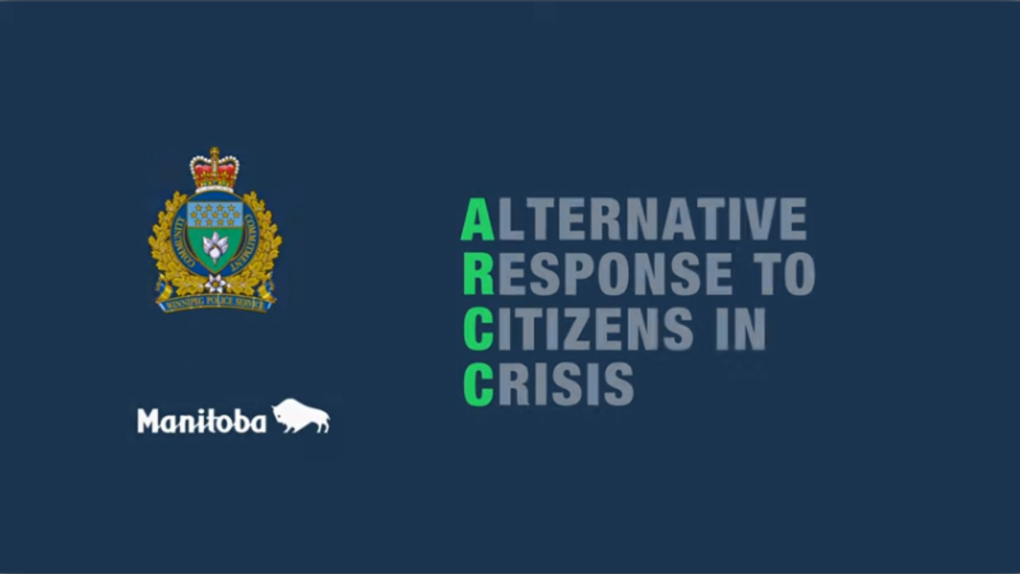'A leader in collaborative plans': Looking at the impact of the ARCC program so far in Winnipeg
 Source: winnipeg.ca
Source: winnipeg.ca
The Winnipeg Police Chief is expected to briefly address a new mental health program within the Winnipeg Police Service on Friday and the positive impacts it has already had, something which is exciting news for those involved.
The Alternative Response to Citizens in Crisis (ARCC) program was launched in December 2021 to offer better support to those who are experiencing a mental health crisis.
The ARCC teams are made up of an officer in plain clothes and a specialized mental health clinician who attend calls to 911 pertaining to mental health.
"Since inception ARCC has made significant progress in providing support to persons in chronic crisis and in need of coordinated community supports. In the past quarter ARCC responded to 82 police events," Chief Danny Smyth said in a report that will be shared at the Winnipeg Police Board Meeting on Friday.
Erika Hunzinger, a manager with the Crisis Response Services and oversees the ARCC program, said she feels the program is going very well.
"AARC has really been a leader in creating collaborative plans. Part of that is developing a response plan for an individual so that general patrol officers can use that for an informed tool when they're responding to a call," said Hunzinger. She noted this step allows AARC to still play a role in helping with mental health calls, even if they aren't on duty.
She said it is extremely encouraging to know the program is being viewed in a positive light.
Not only has it been a good system for police, but she also said it has helped the health-care system by responding to more calls and having an element of safety for the specialized mental health clinician as well.
While there are teams that go to calls with police, Hunzinger said there has also been case management work for those who have frequent 911 calls and visits to health centres.
This is something Smyth also addressed in his report, referencing one individual, who in 2021, was involved in 62 events that needed police.
"ARCC began to proactively case manage this individual during January 2022. Through the collaborative and coordinated efforts of nine different government and community agencies, the behaviour of the individual stabilized, resulting in a 24% reduction in calls for police by the end of Q1," Smyth said in the report.
Hunzinger said in the past, callers to 911 would be asked if they wanted to go to the Crisis Response Centre or whether they could be taken to an emergency department.
"When ARCC goes out they are able to safely provide service for those individuals right in their own homes 87 per cent of the time in the first quarter," she said. "We've just responded to the tip of the iceberg of the work. The work that we have done, we're showing a huge impact on not having to remove an individual from their home environment."
Moving forward, Hunzinger said she would love to see the program move to seven days a week as it only currently operates Monday to Friday, and she would like to see more teams available throughout a given day.
When the one-year anniversary of the program rolls around in December, she said she hopes to show the impact of the work the ARCC team does.
"We are demonstrating that this more collaborative model is effective and that is just what I hope to show in the limited amount of work we are able to do with two teams – that the work that is done is quality and preferred by the individuals."
Before the ARCC program, Smyth said in his report that in 2020, police made 2,102 trips to health-care facilities with people in crisis and spent the equivalent of 147 days waiting with people to be turned over to clinical staff.
CTVNews.ca Top Stories

DEVELOPING UnitedHealthcare CEO shooting: Suspect appeared to be 'lying in wait'
UnitedHealthcare CEO Brian Thompson was killed Wednesday morning in what investigators suspect was a targeted shooting outside a Manhattan hotel where the health insurer was holding an investor conference.
BREAKING Multiple people stabbed in downtown Vancouver: police
A 'number of people' were stabbed in downtown Vancouver Wednesday before the suspect was shot by police, authorities say.
Warm, wet winter expected in much of Canada, say forecasters
Federal forecasters expect a warmer-than-normal start to winter in most of Canada, with more precipitation than usual in parts of the country.
Air Canada to bar carry-on bags for lowest-fare customers
Air Canada plans to bar carry-on bags and impose a seat selection fee for its lowest-fare customers in the new year.
French government toppled in historic no-confidence vote
French opposition lawmakers brought the government down on Wednesday, throwing the European Union's second-biggest economic power deeper into a political crisis that threatens its capacity to legislate and rein in a massive budget deficit.
Why are some Canada Post outlets still open during CUPW strike?
As many postal workers continue to strike across the country, some Canadians have been puzzled by the fact some Canada Post offices and retail outlets remain open.
opinion Tom Mulcair: The one place in Canada where Poilievre can't break through is Quebec
Former NDP leader Tom Mulcair says Pierre Poilievre has only himself to blame for his poor performance in the polls in Quebec.
$80-million jackpot: 2 winning tickets sold in Canada
There are two winners of the $80 million Lotto Max jackpot, Ontario Lottery and Gaming (OLG) has announced. The prize will be split between two tickets sold in Quebec and Alberta, respectively.
2 Quebec men top Bolo Program's latest Top 25 list of Canada's most wanted
Two men believed to be central figures in Quebec’s violent and ongoing drug conflict topped the Bolo Program's latest Top 25 list of Canada's Most Wanted fugitives.

































